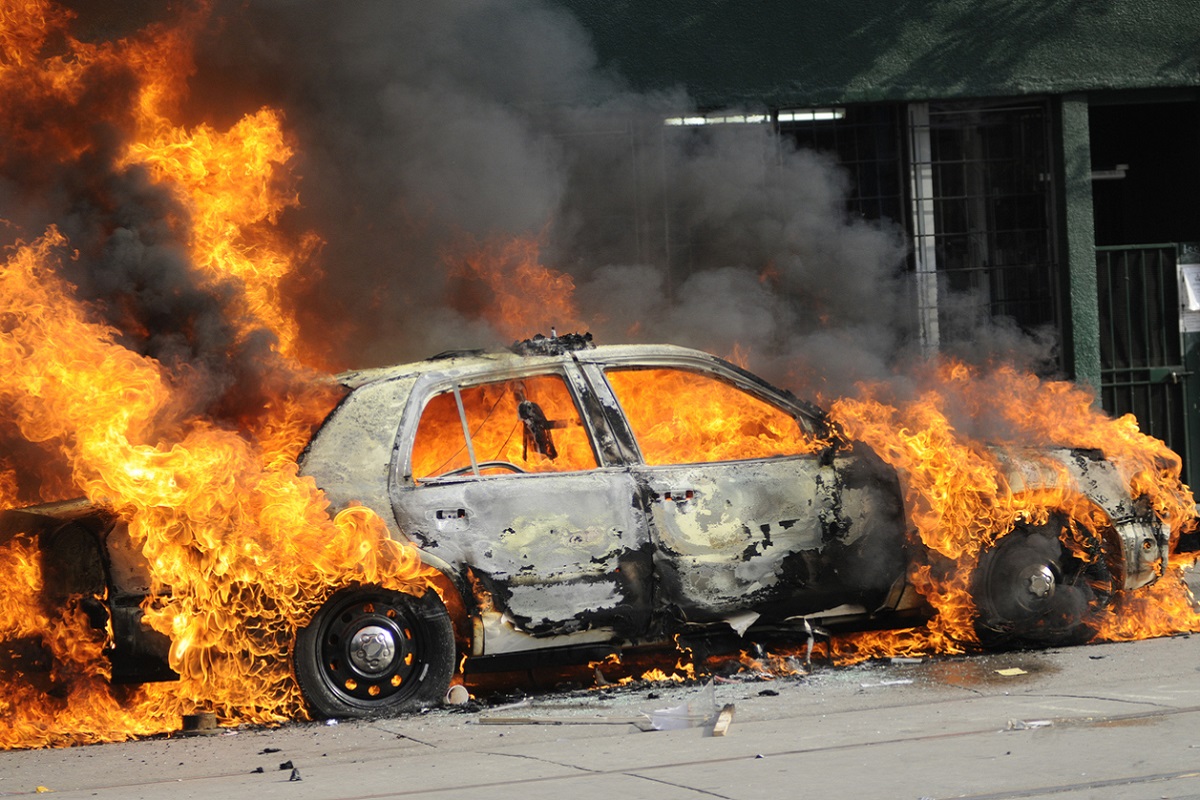A day before the worst terror strike in the Kashmir Valley, a bus load of soldiers belonging to the Iranian Revolutionary Guards were targeted in an eerily similar suicide attack. On 13 February along the Iran-Pakistan border, the bus ferrying soldiers of the Iranian para-military (like India’s own CRPF), was attacked by a car full of explosives that destroyed and charred the bus and killed at least 27 soldiers. The attack near the Iranian town of Zahedan was one of the worst terror strikes in the recent history of such outrages within Iran. The very next day on 14 February, a bus carrying CRPF jawans was similarly attacked by a carborne suicide attacker near Pulwama, killing 41 personnel.
In both India and Iran, two Pakistan-based organisations readily claimed responsibility ~ Jaish Al-Adl for the Iranian attack and Jaish-e-Mohammed for the Indian strike. Despite the claims by the Pakistan-based and Pakistan- supported terror organisations, the country denied any knowledge or involvement even as Tehran and New Delhi were left fuming at the incorrigible behaviour of the establishment, from across the border.
Advertisement
Like India’s Kashmir Valley bordering the eastern side of Pakistan, the south-eastern Iranian province of Sistan-Baluchistan bordering the western part of Pakistan is a restive region that is vulnerable to armed insurgency, terror attacks, assassinations and bombings. For decades, the Iranians like the Indian state have been blaming Pakistan for providing shelter and support to insurgent groups operating out of Pakistan. The language of angst and frustration emanating from both Tehran and New Delhi are much the same in terms of specifics. The Iranian foreign ministry spokesperson has criticised Pakistan by stating, “It is not tolerable for us that the government and the army of Pakistan cannot prevent such acts of sabotage and terror from inside their soil against Iran”. The statement was couched with the explicit warning that suitable revenge would be extracted for the heinous act.
The Iranian unrest has a specific Shia-Sunni angle. The Pakistan-based extremist group, Jaish Al-Adl (Army of Justice), believed to be an incarnation of the erstwhile Jundallah (Soldiers of God), the narrative of the Pakistani establishment nurturing terror has gained currency. Pakistan exports terrorism to its neighbouring countries, just as Maulana Masood Azar’s Jaish-e-Mohammed does to India.
However unlike India, Iran’s complicated history of ties with the US and the Arab states ensures that it ploughs a lonely furrow on terrorism, despite being routinely targeted. The reality of Middle East politics, energy compulsions and historical agreements have rather unfairly reduced the Iranian State to the position of a ‘rogue’ nation though there has been no major terrorist attack that can be traced to Tehran with sufficient credibility. On the contrary, the handiwork of the Pakistanis and a few affluent Arab countries is palpable.
Despite overwhelming evidence garnered by America’s own intelligence agency the CIA, President Donald Trump gave the Saudis the long rope in the aftermath of the Khashoggi killing, and even insisted on ‘standing with Saudi Arabia’. Despite Iran’s compliance with the terms of the Nuclear Agreement by Iran, as ratified by the International Atomic Energy Agency (IAEA), the path-breaking Iran Nuclear Deal was recklessly and unilaterally trashed by the US. The invaluable role played by the Gulf Sheikdoms in fuelling and propagating the violently extremist ideology in the Middle East is on occasion ignored.
So while the Zahedan terrorattack in Iran elicited no major support, condemnation or sympathy from the US, , the Pulwama tragedy prompted President Trump to condemn the ‘horrible situation’, and added that it would be ‘wonderful’ if the two countries (i.e. India and Pakistan) could get along. Meanwhile, the US plans to extricate itself unilaterally from Afghanistan even as the hapless regime in Kabul looks on, along with the equally concerned governments in Iran and India. Both countries are worried about the return of a Pakistan-backed Taliban in a country, that Islamabad considers its ‘Strategic Depth’. In a strange reversal of fortune for the Pakistanis, the US is deliberately carving out a role for the Pakistanis in the Afghan muddle, even after routinely accusing Pakistan with gross insincerity and duplicity as regards terror. The fickle decision of the US to leave the region yet again in a mess, after nearly 30 years of a similar extrication from Afghanistan, has deepened the uncertainty.
The subcontinent is today paying the price for the CIA-ISI sponsored religious extremism in the 1980’s. Iran is not suitably vocal at the high-table of international diplomacy. India’s recent tryst with Pulwama exposed its relative loneliness with the US spouting platitudes and China engaged in realpolitik. This opens the ground for civilisational, cultural and natural allies, such as Iran and India, to join hands and carve out a mutually beneficial bargaining space in the emerging geopolitics of the region. Tehran and New Delhi crucially converge on the fate of and stakes in Afghanistan, an area where the current US plans has envisaged limited/ no space for either of the two. Pakistan, in terms of what it stands for and supports, is a perennial area of considerable concern to Indo-Iranian sensibilities.
The two nations have already stood up for each other in terms of continuing trade despite the US ‘ban’ on Iranian oil . Both have in fact invested strategically by way of the Chabahar port. In a perverse manner, the recent commonality of terror wounds and its genesis and benefactors warrant an even deeper linkage between the two civilisations and affected nations.
(The writer IS Lt Gen PVSM, AVSM (Retd), Former Lt Governor of Andaman & Nicobar Islands & Puducherry)











